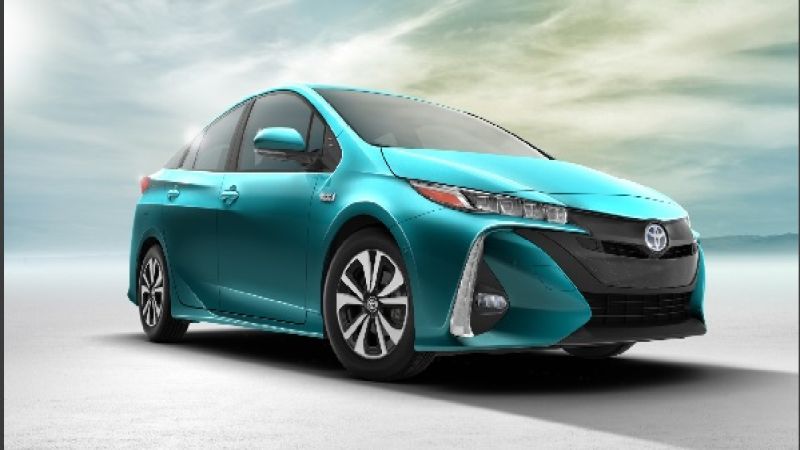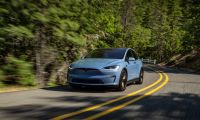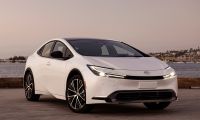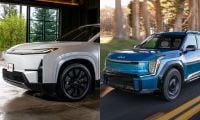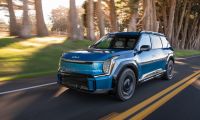Today at the New York Auto Show Toyota unveiled the all-new 2017 Prius Prime. The Prime is the new Prius that replaces the “Prius Plug-In.” This plug-in hybrid electric vehicle will have a new 22 mile EV range, doubling the outgoing model’s. Even more impressive, the folks at Toyota estimate that the new Prius Prime will be rated at 120 MPGe.
In October of 2013, the Prius Plug-in was the top-selling EV in America. During its run, the Prius Plug-In was often the number three selling EV in America, and it had many months where it was the number two EV for sales. These days, CARB and other groups are upping the incentives for battery electric vehicles. Thus, plug-in hybrids like the Prius Prime are now at a disadvantage. It will be interesting to see how the car sells. With a higher cost of energy per mile to run an EV on electricity than to run a hybrid on gasoline in some key markets, a slow launch might be a fair estimate.
Toyota says that if its estimates are correct, the Prius Prime will be the most efficient plug-in hybrid in its class. Toyota expects that its efficiency when operating as a hybrid vehicle will equal that of its non-plug-in Prius Liftback, so 52 MPG City and 52 MPG combined. Just as an aside, the 2016 Prius Eco is currently rated at 58 MPG City and 56 MPG combined.
Toyota says that the 22-mile EV-only range is usable at speeds up to 84 MPH. Because the Prius Prime has a smaller (and lighter) 8.8 kWh battery pack than do battery electric vehicles (BEVs), the Prius Prime can charge at home or work in under three hours on a 240V circuit, or 5.5 hours on a standard 120V AC line. The last BEV we tested took over 14 hours to charge that way. Range is estimated at an amazing 600 miles on a full charge and with a full tank of gasoline.
Like the current and former Prius, the Prius Prime will have advanced forward collision prevention available. Thus, it will continue to be eligible for the IIHS Top Safety Pick Plus rating, something most popular BEVs, such as the Nissan Leaf, are not able to earn.
Image Courtesy Of Toyota
Set as google preferred source


